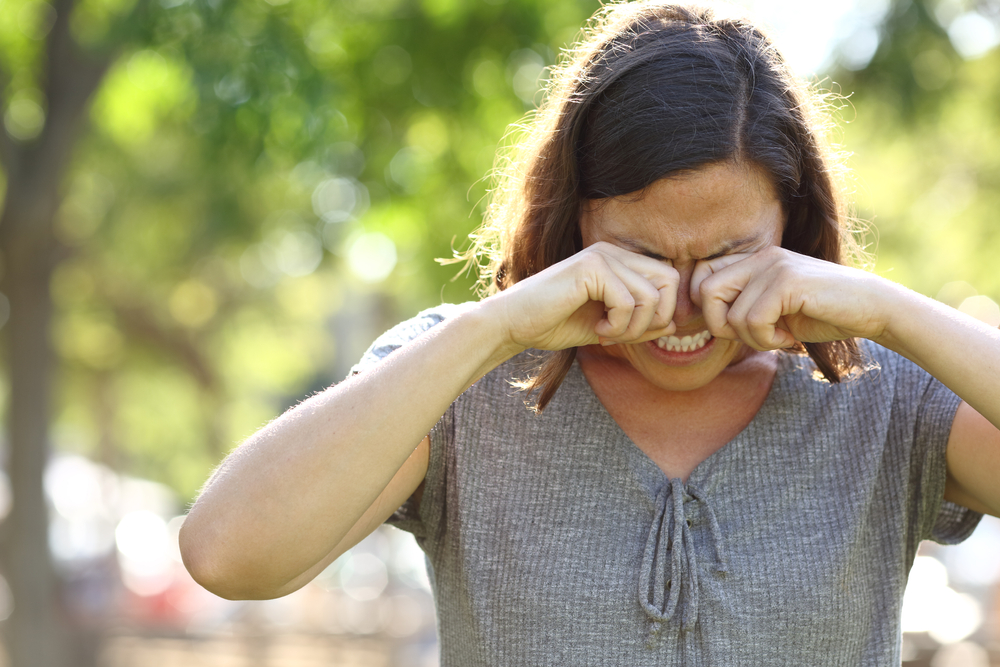
Dry eyes is a common condition that occurs when your eyes don't produce enough tears or the tears evaporate too quickly, leading to discomfort, irritation, and even vision problems. The causes of dry eyes can vary, ranging from environmental factors to medical conditions, but one question that often arises is whether dry eyes tend to worsen during the summer months.
Understanding the Connection Between Summer and Dry Eyes
The summer season can indeed be a challenging time for individuals with dry eyes. The combination of higher temperatures, and exposure to environmental factors like air conditioning and outdoor activities can all contribute to the worsening of dry eye symptoms.
Factors that Exacerbate Dry Eye Symptoms in the Summer
- Heat and Humidity: The summer heat can cause your tears to evaporate more quickly, leading to a lack of moisture on the surface of your eyes. Additionally, high humidity levels can disrupt the natural tear film, further exacerbating dryness.
- Air Conditioning: While a welcome relief from the summer heat, air conditioning can also be a culprit in worsening dry eye symptoms. The cool, dry air it produces can strip moisture from your eyes, leaving them feeling uncomfortable and irritated.
- Outdoor Activities: Spending more time outdoors during the summer months can expose your eyes to environmental factors like wind, dust, and pollen, which can all contribute to dry eye discomfort.
- Medication Side Effects: Certain medications, such as antihistamines, decongestants, and antidepressants, can have the side effect of reducing tear production, making dry eyes more pronounced during the summer.
- Hormonal Changes: Hormonal fluctuations, which can occur more frequently during the summer months, can also impact tear production and contribute to dry eye symptoms.
Common Symptoms of Dry Eyes During the Summer
When the summer heat and environmental factors combine, individuals with dry eyes may experience a variety of symptoms, including:
- Burning, stinging, or itching sensations in the eyes
- Redness and irritation
- Blurred vision or sensitivity to light
- Feeling like there is a foreign object in the eye
- Increased eye fatigue or discomfort
- Difficulty wearing contact lenses
Strategies for Managing Dry Eyes in the Summer
To help alleviate the discomfort of dry eyes during the summer, consider the following strategies:
- Hydrate Your Eyes: Use artificial tear drops or lubricating eye drops throughout the day to keep your eyes moisturized. Look for preservative-free options for long-term use.
- Limit Time in Air-Conditioned Environments: When possible, take breaks from air-conditioned spaces and allow your eyes to adjust to the outside environment.
- Wear Sunglasses: Protect your eyes from the sun's glare and wind by wearing wraparound sunglasses or a wide-brimmed hat when outdoors.
- Adjust Your Environment: Use a humidifier at home or in your office to add moisture to the air and prevent tear evaporation.
- Blink More Often: Make a conscious effort to blink frequently, as this helps spread tears across the surface of your eyes.
- Avoid Irritants: Steer clear of smoke, dust, and other environmental irritants that can exacerbate dry eye symptoms.
- Stay Hydrated: Drink plenty of water throughout the day to maintain overall hydration, which can support tear production.
Treatment Options for Dry Eyes
- For more severe or persistent dry eye symptoms, your eye doctor may recommend additional treatment options, such as:
- Prescription eye drops or ointments to reduce inflammation and increase tear production
- Thermal pulsation therapy to improve the function of your meibomian glands, which produce the oil component of tears
- Punctal plugs or cautery to reduce tear drainage and increase tear retention
- Dietary supplements or omega-3 fatty acid supplements to support tear film quality
Enjoying the Summer While Managing Dry Eye Symptoms
While the summer months can be challenging for those with dry eyes, with the right strategies and treatment options, you can take steps to manage your symptoms and continue enjoying the warmer weather. By understanding the factors that contribute to dry eye discomfort and implementing the appropriate management techniques, you can keep your eyes comfortable and maintain your quality of life throughout the summer season.
If you're struggling with dry eye symptoms this summer, schedule a dry eye evaluation with Insight Eyecare. We can provide personalized recommendations and treatment options to help you find relief and enjoy the summer to the fullest. Visit our office in Houston, Texas, or call (713) 462-2010 to book an appointment today.





